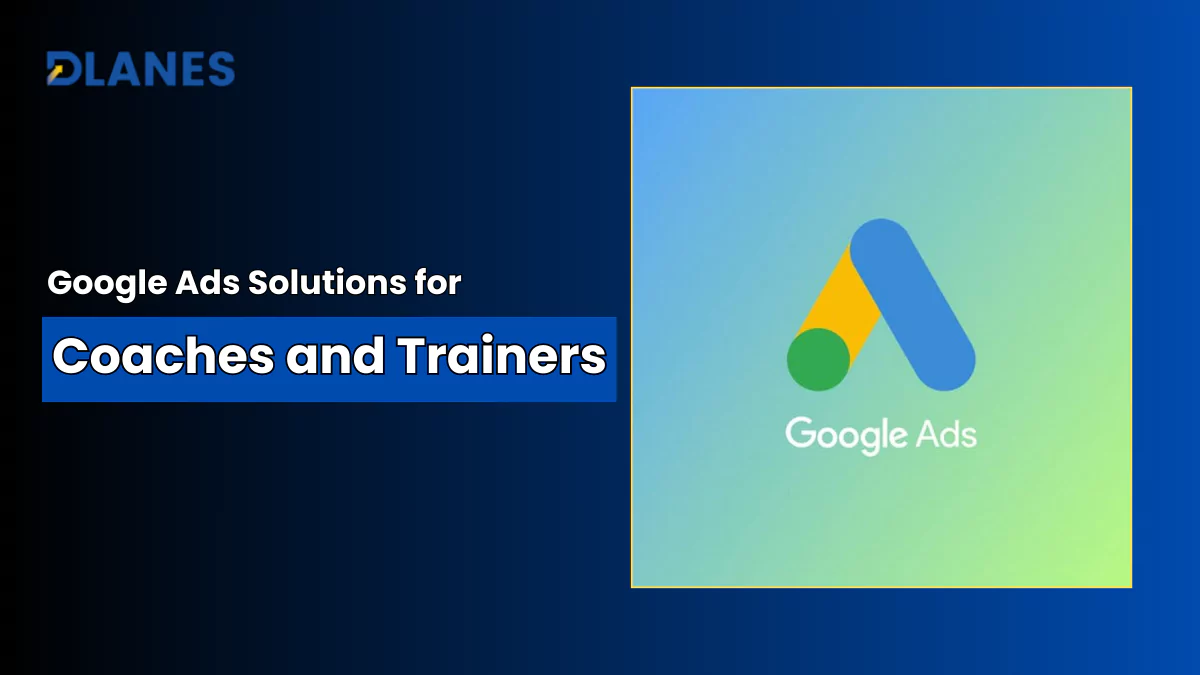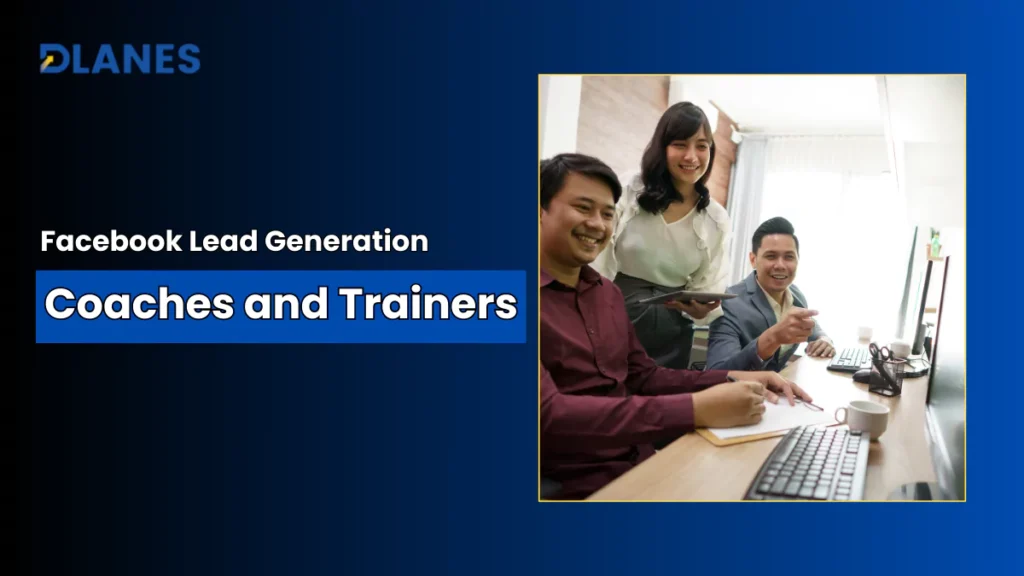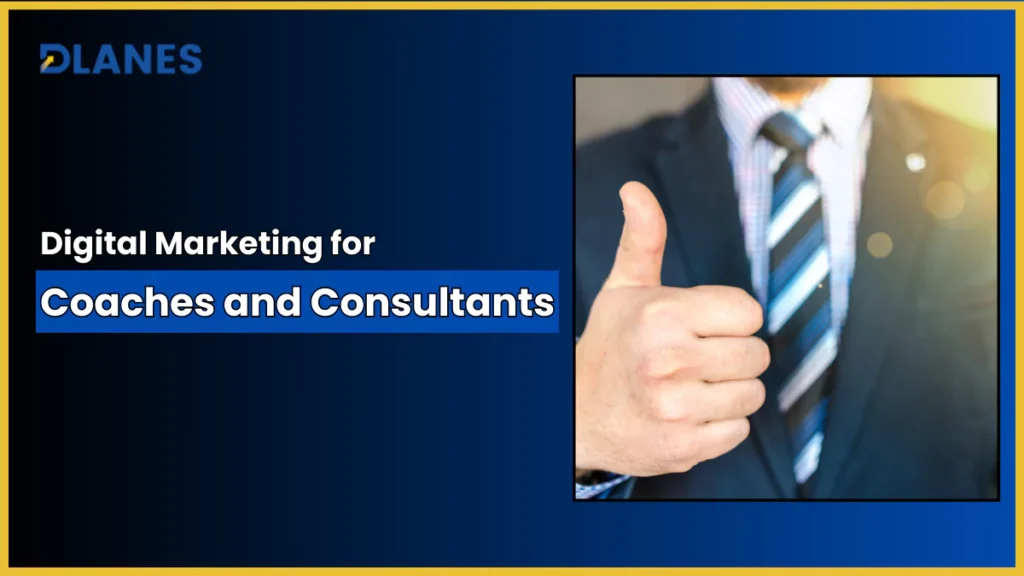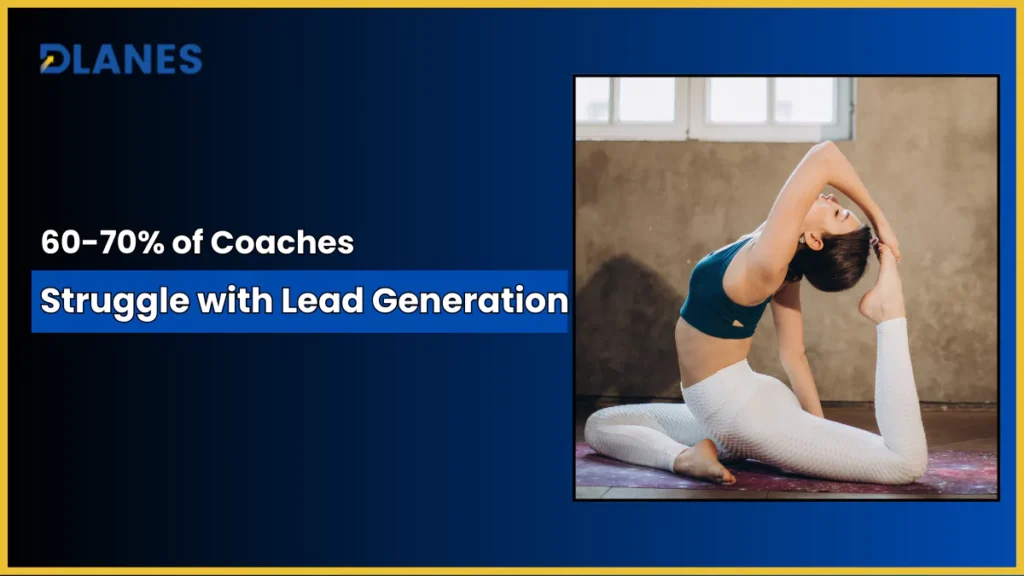Google Ads Leads Generation for Coaches and Trainers

By Team Dlanes
Table of Contents
In the highly competitive field of coaching and training, standing out and attracting new clients is crucial. Google Ads offers a powerful platform to achieve this, yet many coaches and trainers struggle with utilizing it effectively. This article provides unique strategies tailored specifically for coaches and trainers, addressing common challenges and offering solutions to optimize Google Ads for maximum impact.
Why Google Ads for Coaches and Trainers?
Google Ads allows coaches and trainers to reach potential clients actively searching for their services. With billions of searches conducted daily, it’s an invaluable tool for visibility and lead generation.
Key Benefits of Google Ads
- Targeted Reach: Show your ads to people actively looking for coaching or training services.
- Cost Control: Manage your budget effectively with pay-per-click (PPC) advertising.
- Measurable Results: Track performance and adjust strategies in real-time.
- Flexibility: Customize ads based on location, keywords, and demographics.
The Problem: Common Challenges in Using Google Ads
1. High Competition and Cost Per Click (CPC)
Keywords related to coaching and training are often highly competitive, leading to higher CPC. This can make it difficult to achieve a good return on investment (ROI) if not managed properly.
2. Poor Ad Targeting
Without precise targeting, ads can reach the wrong audience, resulting in low click-through rates (CTR) and wasted budget.
3. Ineffective Ad Copy and Landing Pages
If the ad copy and landing pages do not resonate with potential clients, it can lead to low conversion rates, even if the ads get clicks.
4. Limited Understanding of Metrics
Many coaches and trainers struggle to interpret the data from Google Ads, leading to ineffective campaign adjustments and suboptimal performance.
Unique Strategies and Solutions for Coaches and Trainers
Step 1: Advanced Keyword Research
Long-Tail Keywords
Focus on long-tail keywords that are more specific and less competitive. For example, instead of targeting “life coach,” use “life coach for young professionals.” This approach reduces CPC and attracts more qualified leads.
Negative Keywords
Use negative keywords to exclude irrelevant searches. This ensures your budget is spent only on high-intent searches, improving ROI.
Step 2: Crafting Compelling Ad Copy
Highlight Unique Selling Points
Clearly communicate what sets your coaching or training services apart. Highlight unique methodologies, certifications, or success stories.
Use Strong Calls to Action
Incorporate compelling CTAs like “Book Your Free Consultation” or “Start Your Journey Today” to encourage immediate action.
Step 3: Optimizing Landing Pages
Relevance and Clarity
Ensure the landing page content matches the ad copy and is clear and concise. Include testimonials, client success stories, and clear CTAs to guide visitors towards conversion.
Mobile Optimization
With a significant number of users accessing the internet via mobile devices, ensure your landing pages are mobile-friendly for a seamless user experience.
Step 4: Analyzing and Adjusting Campaigns
Utilize Google Analytics
Integrate Google Analytics to track user behavior on your landing pages. This provides insights into what works and what needs improvement.
A/B Testing
Regularly perform A/B testing on ad copy, CTAs, and landing page elements to identify the most effective combinations.
Step 5: Retargeting
Retarget Previous Visitors
Use retargeting to reach people who have previously visited your website but didn’t convert. This keeps your services top-of-mind and encourages them to reconsider.
Personalized Ads
Create personalized ads based on user behavior. For instance, if someone visited your page on executive coaching, show them ads highlighting your expertise in that area.
FAQ
How can I reduce the cost per click (CPC) for my Google Ads?
To reduce CPC, focus on long-tail keywords and use negative keywords to filter out irrelevant traffic. Regularly optimize your ad copy and landing pages to improve quality scores, which can lower CPC.
What makes a good landing page for Google Ads?
A good landing page is relevant to the ad copy, clear, and concise. It should include compelling headlines, client testimonials, and a strong call to action. Mobile optimization is also crucial for a seamless user experience.
How often should I review and adjust my Google Ads campaigns?
Regularly review your campaigns at least once a week. Analyze performance metrics such as CTR, conversion rate, CPA, and ROAS to identify areas for improvement. Adjust your keywords, ad copy, and targeting based on the data to optimize performance.


